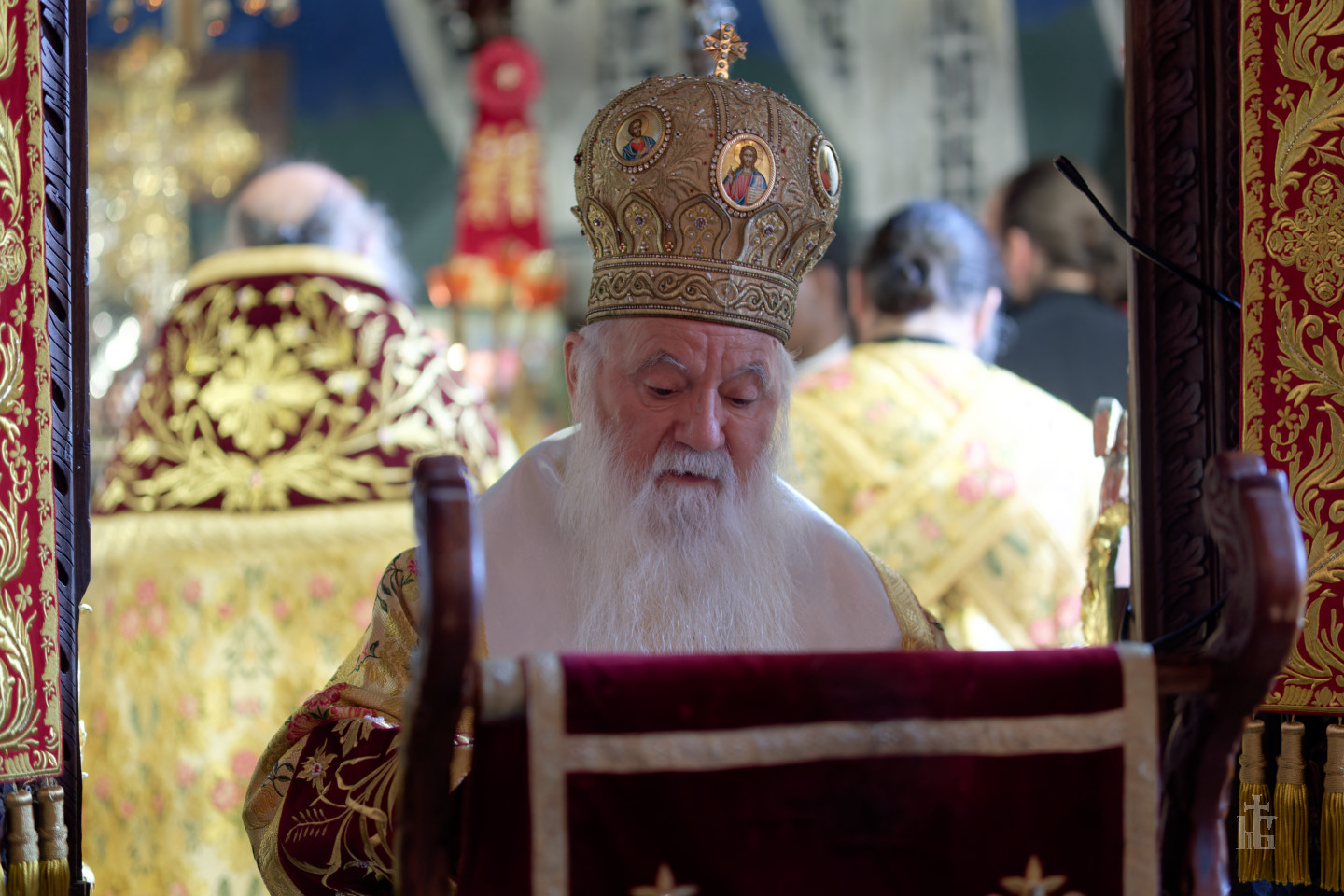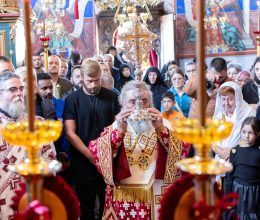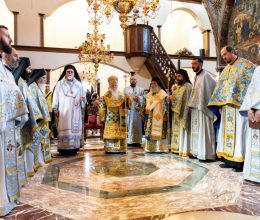Sermon by His Eminence Metropolitan Timotheus of Debar and Kichevo, delivered during the Divine Liturgy in commemoration of Saint Partenius of Lampsacus, February 7/20, 2024, Anno Domini
In the name of the Father, the Son, and the Holy Spirit!
Dear brothers and sisters,
The question often arises: what does it mean to be wise or intelligent? Different people respond differently to this question. Some, for example, call those wise who know how to earn money and achieve wealth, or those who manage to gain power, or those who have gained fame and glory, or those who have a beautiful, comfortable life and enjoy pleasures in life. The leitmotif for these people is “we live on this earth once, there is no second time,” consequently, it is necessary “by all means to achieve success and to gain wealth, power, and enjoyment in life while there is time.” The logic here is simple: let us eat, drink, be merry, and take everything from life, for tomorrow we die. Or according to a popular Serbian song: “take everything that life offers you, today you are, tomorrow you are not.”
On the other hand, many people do not accept such a public, and very low understanding of human intelligence. They answer the question of whom they can call wise differently: someone who has received excellent education, who has a wide erudition and speaks several languages, or someone who has traveled a lot, knows a lot, and so on. “It’s interesting to interact with such a person” – these people would say, and they are for them wise people. Others might say that a wise person is one who is experienced, insightful, who knows life and people, and knows how to apply that knowledge in their life. Such or similar answers are usually received and given by secular people to the above question.

Christianity, however, answers this question quite differently. Here is what St. Anthony the Great says: “People are usually called wise according to the improper use of this word. Not those who have studied the teachings of ancient sages but those whose soul is wise and who can distinguish what is evil and what is good. Avoid the evil and soul-destroying, and reasonably emulate and do the good and soul-beneficial with great gratitude to God. They are the only ones who should be called wise people.” From these words of St. Anthony the Great, first and foremost, it can be concluded that a person cannot be wise without God. Only the one who pleases God and fulfills His will can be called a wise person.
St. John Climacus speaks similarly about the wise. For him, to be wise is to fulfill God’s will in every place, at every time, and in every deed. In other words, to be called wise or intelligent, one needs to know God’s will and fulfill it. Indeed, this wisdom is taught by Holy Scripture when it speaks through the mouth of St. Apostle Paul: “Therefore do not be unwise, but understand what the will of the Lord is!” (Ephesians 5:17). And this is taught by the main Christian prayer through the words: “Thy will be done,” a petition that we utter every day.
St. Philaret of Moscow most clearly answers how to know God’s will: “Cry out with the words of Paul: Lord! What wilt Thou have me to do? If it pleases Thee, O Lord, it is acceptable to me. If it pleases Thee, bless it; if not, allow me not to do it. Then listen to what God says to you in your word, in your reason, and in your conscience, and in the advice of wise and godly people, and in the internal and external signs or manifestations.
Saint Partenius of Lampsacus, whose memory we celebrate today, knew how to recognize God’s will, therefore, he was a wise Christian and fulfilled the will of God, the will of the Heavenly Father, which leads to salvation and eternal life.
Let us turn with sincere prayer to St. Partenius, that he may strengthen our prayer before the throne of the Heavenly Father, so we too may know and fulfill it, that we may inherit the Kingdom of Heaven, now and in all eternity. Through the prayers of St. Partenius, so be it.
Amen!















